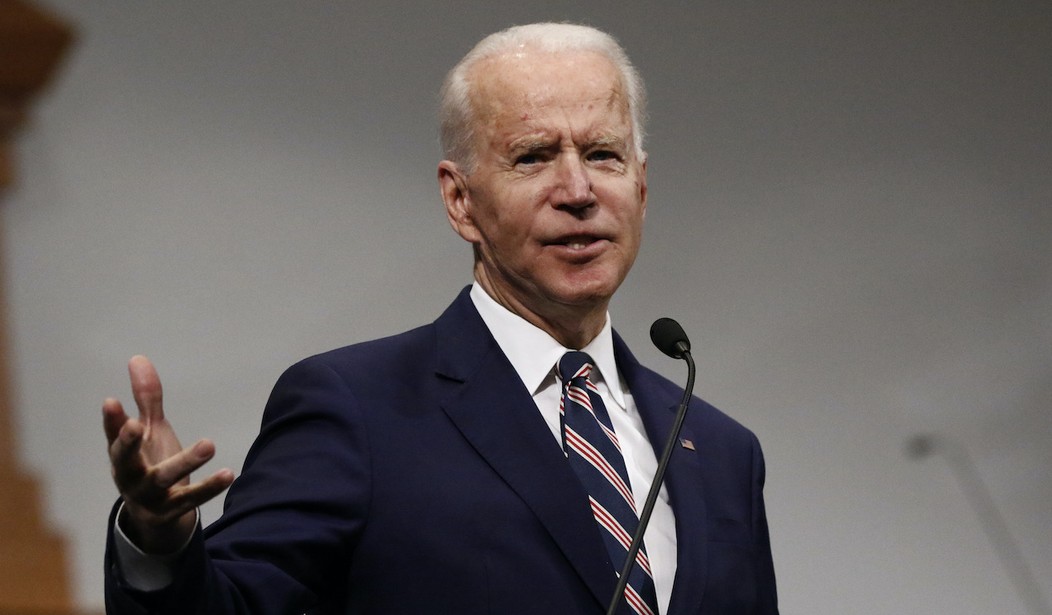Does Dr. Ezekiel Emanuel believe Joe Biden would be better off dead?
That would be a peculiar position for Biden's chief adviser on medical issues and a member of the candidate's Public Health Advisory Committee to take. But if we accept the reasoning behind Emanuel's infamous 2014 essay, Biden is nothing more than a resource-sucking shell of himself who should stop trying to prolong his life.
I suspect that if one of Trump's advisers on coronavirus had once taken to the august pages of The Atlantic to reason that men who reach the age of 75 are useless to society, the press would be vigorously exploring and amplifying his position. Reporters have rarely bothered to bring it up with Emanuel, who is constantly on TV -- or with Biden, who is now "sheltered in place" and trying to prolong his life.
It's quite simple: Does Emanuel believe that Biden, aged 78 on Inauguration Day, is faltering or declining, or in a state that may not be worse than death but is nonetheless deprived? Does Emanuel consider Biden to have been robbed of his ability to contribute to work, society and the world? Does he believe that Biden will now be remembered as feeble, ineffectual and even pathetic? Is Biden's creativity, originality and productivity pretty much gone? Surely, a younger person, according to Emanuel's own societal prescription, would be better prepared for the job.
While some of us believe age is catching up to Biden -- time waits for no one, etc. -- we still believe his life is more than political aspirations. Does Emanuel?
In his essay, Biden's high-achieving adviser, one of the architects of Obamacare, judges the value of a life by the number of books a person can write or the number of technocratic laws they can help pass or the number of times they can climb Kilimanjaro. Did you know that the average age that Nobel Prize-winning physicists make their great discoveries is 48? Really, after that our feeble minds are "constricting of our ambitions and expectations."
Recommended
At 65, Emanuel promises to stop attempting to actively prolong his life. No more colonoscopies and no more flu shots, he assures us. "And if there were to be a flu pandemic," he writes, "a younger person who has yet to live a complete life ought to get the vaccine or any antiviral drugs." Does Biden's scientific advisor believe that it is the moral responsibility of older Americans to deny themselves potential coronavirus vaccines? If not, why not?
Of course, Emanuel claims to be speaking only for himself, calling his view "a personal preference, not a policy proposal." But is his logic not universal? Would it not apply both to every man over 75 and to Americans who suffer from cognitive disorders and other disabilities? After all, they consume precious resources that could be used by the vibrant young people chasing their first Nobel Prize.
This kind of zero-sum thinking often lurks within the environmentalist movement, and elsewhere on the Left. Yet, if an AIDS patient in 2005 had adopted Emanuel-like thinking, he might have missed out on incredible technological advances that now allow people like himself to live long, fulfilling lives.
The media don't ask Emanuel about any of this. They do, however, treat him as a leading expert on COVID-19.
On March 27, Emanuel, who is chairman of the department of medical ethics at the University of Pennsylvania, said on "Morning Joe" that at the current rate of spread, there would likely be 100 million Americans infected by the coronavirus in a month. (Yesterday was the one-month anniversary of Emanuel's prediction, and he turned out to be somewhere in the vicinity of 99 million cases off. I haven't won a single Nobel Prize, and I bet I could offer a forecast that comes within 99 million people of being correct.)
But Emanuel, and other Obama-era figures such as Andy Slavitt -- who cited predictions that a million Americans would be dead of coronavirus -- are given lifetime special status as reliable experts, no matter how wrong they are.
A number of liberal pundits have accused anyone who suggests reopening the economy of trying to selfishly sacrifice their grandparents to the gods of Wall Street. When the Texas lieutenant governor argued that old people should volunteer to die and save the economy, it was a national story. But here we have a leading adviser to the presumptive candidate of the Democratic Party who once argued, before there was any crisis, that the elderly were an encumbrance of the young.
Now, I'm not particularly offended by Emanuel's argument. It's a provocative one about the complicated subjects of medicine, suffering and age. People should be able to make counterintuitive and unsettling arguments about the world without getting dragged forever. But if the people who offer anti-humanist thought experiments -- the same people who were dramatically wrong about a real-life crisis -- are involved in crafting real-world policy, they should, at the very least, be asked to explain their position.
David Harsanyi is a senior writer at National Review and the author of the book "First Freedom: A Ride Through America's Enduring History With the Gun." To read features by other Creators Syndicate writers and cartoonists, visit the Creators Syndicate webpage at www.creators.com.

























Join the conversation as a VIP Member